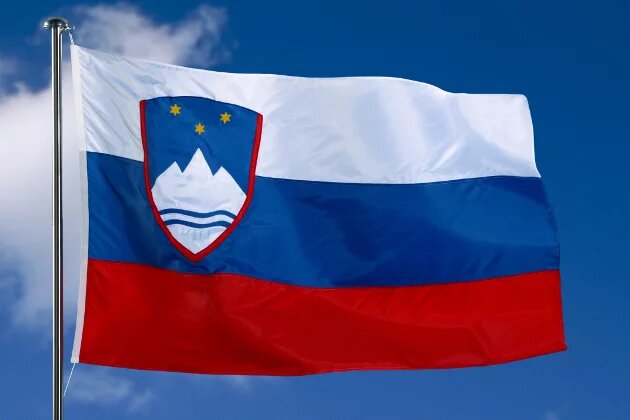

Gender-political situation in Slovenia
Legal situation:
- Equal equality law
- Act on Equal Opportunities for Women and Men
- Employment Relationship Act (2003)
- Anti-discrimination law
- Laws on quotas, above all in the political and economic fields
- Other laws/statutory regulations + government programmes
- Gender Mainstreaming
- Amendments to the Penal Code (2004)
- Draft Family Act/Family Code
- National Action Plan for Equal Opportunities
- Slovenian EU Presidency 2008
- Current political discourse
Protagonists:
Academia:
Brief description and evaluation
Slovenia has made good progress with its equality policy, especially in terms of the legal situation. The protection and promotion of women’s rights and the participation of women in economic and political life have been afforded legal safeguards. However, the legal situation has had little impact on women’s real living conditions to date: their political representation is very low, their share of management positions is just one-third, and the labour market is still heavily segregated by gender. In the Global Gap Report of the World Economic Forum (2008), Slovenia ranks 51st.
The unequal economic and political participation of women is not or is scarcely a social issue, however. In this context, the minimal presence of non-governmental organisations in gender policy is striking. This is due, on the one hand, to the country’s socialist past and the specific definition of the historic role of women in society. On the other hand, the post-socialist era is marked by a widespread aversion to politics and an anti-feminist reflex which is, above all, prevalent among elite educated women. Many believe that market forces and a liberal-democratic system are enough to guarantee the welfare of the individual and political equality. Consequently, initiatives which challenge the social position of women and promote greater political participation of women have a hard time. General anti-discrimination laws, constitutional complaints and the means of filing lawsuits – i.e. the legal safeguards – are, in the opinion of those with political responsibility, sufficient in order to realise equality.
In Slovenia – as well as in other European countries – a shift in the focus of women’s and gender policy towards a general anti-discrimination policy is evident. This, in turn, provides civil society organisations – which are very well-developed in Slovenia, especially in the field of extra-school human rights education – with a greater opportunity to follow up. The actors in this thematic field also turn to gender mainstreaming when addressing human rights.
Legal Situtation
Gender equality law
With its “Government Programme for the Harmonisation of Laws”, Slovenia began adapting its legislation to that of the EU. The gender equality law has largely gone unchanged though, with only a few minor social laws having been amended. A general ban on discrimination was already entrenched in the country’s constitution.
Act on Equal Opportunities for Women and Men
Drafted by the Office for Equal Opportunities, passed in 2002, inspired by EU legislative and legal practice with the aim of improving existing gender equality instruments. The Act establishes a basis for further legislation on equal opportunities for women and men by defining and banning direct and indirect discrimination. Moreover, it enables positive measures for achieving gender equality and provides for the establishment of the position of an ombudsperson.
Employment Relationship Act (2003)
Introduced a series of new legal regulations on equal opportunities and equality of women and men on the labour market in preparation for accession to the EU.
Anti-discrimination law
A ban on discrimination is anchored in the constitution (Art. 14).
Slovenia has ratified every human rights treaty that relates to discrimination, but not the Supplementary Protocol to the European Convention on Human Rights, which introduces the right to non-discrimination as an independent right.
Following Slovenia’s accession to the EU, the EU directives were implemented. The Act Implementing the Principle of Equal Treatment (2004) is a comprehensive piece of anti-discrimination legislation. It underwent further reform in 2007 after the EU had indicated that the directives were not being implemented sufficiently.
The Employment Relationship Act (2003) formulates a ban on employment discrimination. In 2007, the Act was reformed once again to bring it in line with the EU directives.
Both Acts prohibit direct and indirect discrimination; harassment; calls for discrimination; victimisation based on gender, race or ethnic origin, religion and ideology; sexual orientation; age and impairment. The Employment Relationship Act furthermore covers discrimination on the grounds of social origin, skin colour, health condition, marital status, membership in a trade union, and financial situation.
Prior to the implementation of the EU directives (2008), the ban on discrimination had already been established under criminal law. The adoption of the Penal Code in 2008 led to various offences relating to an infringement of the same rights being treated with varying degrees of punishment in law.
Information on the subject of non-discrimination can be found on the Country Page Slovenia of the European Network of Legal Experts in the Non-discrimination Field.
Laws on quotas, above all in the political and economic fields.
A quota exists for the candidate lists of political parties. 25% of the candidates must be of “another gender”.
Other laws/statutory regulations + government programmes
Gender mainstreaming
As early as 1997, the Office for Women’s Policy launched a pilot project to implement gender mainstreaming at governmental level. The project was based on a contract between the Office for Women’s Policy and the ministries of the interior, of education and sport, and of labour, family and social affairs. The government is under no obligation to adopt gender mainstreaming, however. Ultimately, the project showed very clearly a lack of knowledge, expertise and political will in the three participating ministries and also the need for binding resolutions.
Following on from the project and its findings, the Act on Equal Opportunities for Women and Men (2002) was drafted, which saw gender mainstreaming established as a binding commitment for all ministries and municipalities. They are dutifully bound to promote equal opportunities through general and specific measures and by integrating the gender perspective into the planning, development, implementation, monitoring and evaluation of their policies, and their governance.
Amendments to the Penal Code (2004)
The Penal Code was reformed in 2004 by virtue of a number of amendments to women’s rights, among them a ban on prostitution, pornography and human trafficking.
Draft Family Act/Family Code
In autumn 2009, the ministries of justice and of labour, family and social affairs submitted a draft for a new Family Code to replace the Marriage and Family Relations Act of 1976 by parliamentary resolution. The Act provides for a new definition of the term marriage as “two people living in cohabitation” as well as for equality for same-sex couples registered as partners.
National Action Plan for Equal Opportunities
Passed by virtue of the “Resolution on the National Programme for Equal Opportunities for Women and Men (2005 - 2013)” (PDF, 59 pages, 328 KB). Concretisation in annual work programmes.
Slovenian EU Presidency 2008
Slovenia’s Presidency further implemented the commitments to the declaration of the triple-shared presidency (Germany, Portugal, Slovenia): “Towards Gender Equality in the European Union” and “Towards Gender Equality in the European Union – in relation to the Lisbon Strategy”. Here, the priorities lay in abolishing gender stereotypes in society, in women’s social participation, and in strengthening their role and status. In addition, the monitoring process for implementing the Beijing Platform for Action was pursued further through a report and through the development of “girl-child indicators” as well as a report on women in political decision-making processes.
Current political discourse
Based on the source material available, it is hard to determine the state of current political discourse. Since equality policy had already been an issue in Slovenia in the 1990s and also institutionally entrenched, the accession process did not bring any material changes to the policy in this field. Laws were made more precise in the course of implementing the EU directives. It would appear that Slovenia, like other European countries, has witnessed a shift in women’s policy by transitioning through gender policy to a general anti-discrimination policy. The equality of same-sex relations is currently a more dominant topic.
Protagonists
NGOs: political parties, civil society organisations
The Young Forum of Social Democrats (in Slovenian):
launched a campaign in 2005 to promote freedom and “being different” (freedom of religion, freedom of choice with respect to partners, gender equality, etc.): “The Young Forum of Social Democrats is the current social democracy of young people whose outlook on the world revolves around values such as freedom of the individual; solidarity as the basis for integration into the community; the equality of all people, especially gender equality, acceptance, internationalism; and the right to security in all its forms.”
Government, ministries
Council for the Implementation of the Principle of Equal Treatment:
On the basis of the Act Implementing the Principle of Equal Treatment and the Government of the Republic of Slovenia Rules of Procedure, the government adopted a decision on the establishment, composition, organisation and tasks of the Council of the Government of the Republic of Slovenia for the Implementation of the Principle of Equal Treatment. The Council was first established in 2004 for a four-year mandate. The Council is an expert body of the government of the Republic of Slovenia on matters affecting equal treatment and the prohibition of discrimination. It comprises 13 members: the minister of labour, family and social affairs; the minister of education and sports; the minister of culture; the secretary-general of the government; the Advocate of the Principle of Equality; four representatives of expert bodies (Health Care Institute of the Republic of Slovenia, Social Protection Institute of the Republic of Slovenia, Institute for Ethnic Studies, the Peace Institute); two representatives of NGOs that deal with equal treatment/non-discrimination; and one representative of the Centre for Information, Cooperation and Development of NGOs.
Its tasks:
- Monitoring of the implementation of the Equal Treatment Act
- Monitoring and evaluation of the situation concerning endangered groups from an equal treatment perspective
- Recommendations for legislation and measures on the implementation of equal treatment
- Recommendations for the implementation of educational, awareness-raising and research measures for equal treatment
- Information on the work conducted by the Advocate of the Principle of Equality based on the Advocate’s annual report
- Advice as part of the PROGRESS Programme in the fields of diversity and anti-discrimination
Commission for Petitions, Human Rights and Equal Opportunities:
Slovenia had established a parliamentary commission for women’s policy as early as 1990. It monitored women’s equality and put forward proposals on how to improve their situation. The Commission was supposed to be dissolved in 1996 but was able to continue running following protests by women’s organisations of the political parties and NGOs. Over time, its name was changed to the Commission for Equal Opportunity Policy. Today, it is known as the Commission for Petitions, Human Rights and Equal Opportunities.
Its tasks in the field of equal opportunities are to monitor and examine issues concerning the implementation of policies relating to equal opportunities and equal rights for men and women in all areas of society and the economy as well as legislation in this field.
Office of the Government of the Republic of Slovenia for Equal Opportunities:
Gender equality was originally the responsibility of the Office for Women’s Policy, which had been established in 1992 in order to guarantee professionally the implementation of women’s rights as stipulated in the constitution, legislation and international treaties. Since 2001, responsibility for this area has rested with the Office for Equal Opportunities. Its structure and modus operandi are aligned to the state institutions for gender equality in other European countries and to international commitments. The Office is a central governmental institution and not under the remit of any existing ministries but operates as an independent governmental institution. It is funded entirely through national budgets. Its effectiveness is limited by its insufficient human and financial resources, its unclear mandate, its limited authority, and its marginalised position within the governmental organisation.
Its tasks include monitoring and coordinating all gender equality tasks throughout all ministries (gender mainstreaming) and preparing laws and legal provisions in this field. It also conducts policy analyses and operates as the advocate for the principle of equal treatment.
The areas of work of the Office for Equal Opportunities are:
- Gender mainstreaming (within the ministries and at local level)
- Labour market, employment, work-life balance
- Society of knowledge (education, sport, science and research, culture, media, advertising)
- Welfare (health, social inclusion)
- Gender relations (family life, partnerships, domestic violence, human trafficking, sexual exploitation and sexual violence)
- Decision-making processes (political participation, public administration and jurisdiction, socio-economic participation)
- Non-discrimination for reasons other than/in addition to gender
- Legislative initiative and formulation of policies to prevent and avert discrimination
Advocates of equal opportunities of women and men & of the principle of equal treatment:
The advocates are located in the Office for Equal Opportunities. The advocate for equal opportunities of women and men has been running since 2003, the advocate for the principle of equal treatment since 2005.
The advocates deal with cases of discrimination based on gender, nationality, race, ethnic origin, religion or ideology, impairment, age, sexual orientation or on other personal grounds. Moreover, the advocates provide general information and statements on the issue of discrimination. The tasks of both advocates are currently being fulfilled by one person, even though the possibility of having two separate advocates is provided for by law.
Other gender actors
Slovenian Queer Resources Directory SiQRD (in Slovenian and partly in English):
Portal which bundles information on various queer-related projects, organisations and clubs. It is one of the few sites to address equality and other lifestyles. Contains numerous links to articles and other queer organisations.
Academia
Universities and institutes
The academic landscape is not particularly diverse, with little specialisation. There are virtually no references to institutes in Slovenia that address gender studies or the gender aspect as part of their services.
The Centre For Gender And Politics At The Peace Institute/The Institute For Contemporary Social And Political Studies:
The Peace Institute (est. in 1991) is a non-profit, private research institute financed for the most part through research funding. The Centre for Gender and Politics focuses on women’s human rights, gender equality, women refugees, the Slovenian women’s movement and women and the media. The Centre also has a library and an information and documentation centre. The main aims of the Centre are research and education in the fields of gender and politics.
Thematic fields and/or strategic focus:
- Gender mainstreaming
- Women in transition countries
- Human trafficking and prostitution
- Gender and equal opportunities policies
- Unpaid work
- Male studies
Sources
Description of state of source material
Source materials are not particularly good. Only a few institutions/organisations have their own websites. The few sources are usually only available in Slovenian and not in other languages. The English sites offer an overview but not an in-depth insight. Particularly the non-governmental actors in this field and how they are networked are hard to find online and/or, in part, do not exist any more.
Citing of relevant sources
Website links have been cited in context to the extent that they were available.
Literature:
Milica Antic Gaber, Vlasta Jalusic, "Die Marginalisierung der Relevanz politischer Beteilgung von Frauen in Slowenien" [The marginalisation of the relevance of the political participation of women in Slovenia], in: Hoecker/Fuchs, Handbuch Politische Partizipation von Frauen in Europa [Handbook of political participation of women in Europe], volume IIVS Verlag für Sozialwissenschaften, Wiesbaden 2004
This study was conducted by Tanja Berger und Pamela Dorsch and comissioned by the Gunda Werner Institute of the Heinrich Böll Foundation in 2010.
All images, except marked otherwise: Public Domain CC0

